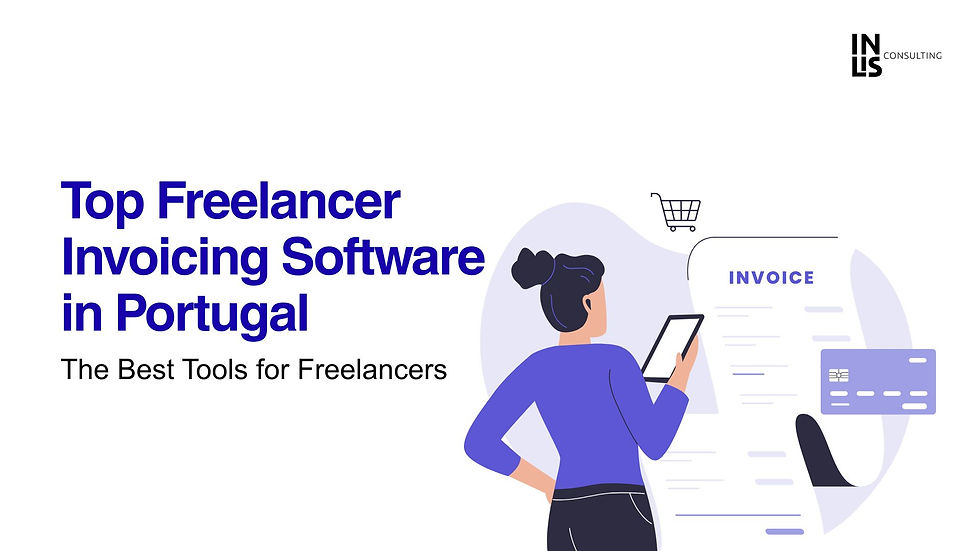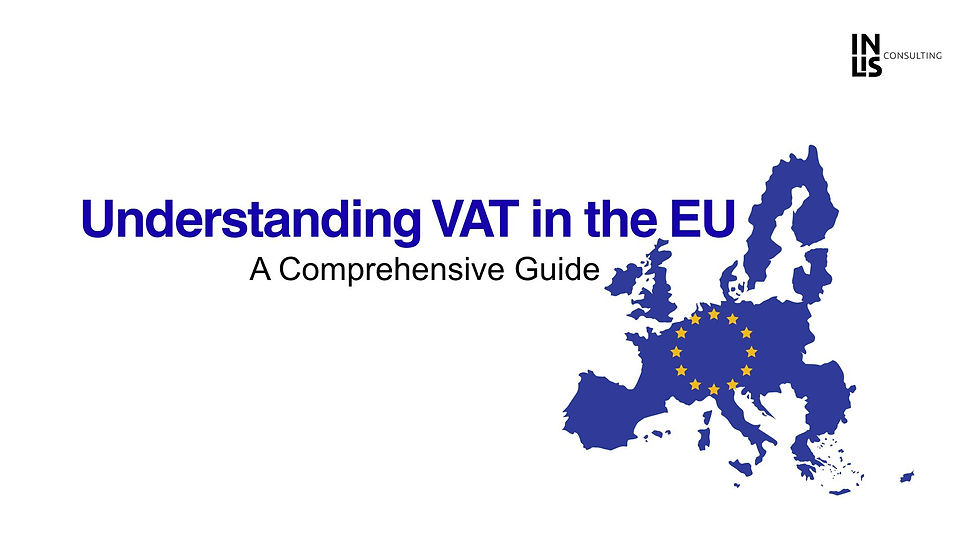VAT: A New Hurdle for Newcomers in Portugal
- INLIS Consulting
- Aug 4
- 2 min read
Starting a self-employed activity in Portugal has become significantly more complicated — especially when it comes to VAT (IVA).

From Exemption to Immediate Obligations
Until recently, new freelancers in Portugal could benefit from a one-year VAT exemption under the Regime Especial de Isenção (Article 53.º do CIVA), provided their annual turnover was below the threshold (~€10–12.5k) and they didn’t engage in import/export or restricted services. occ.pt
However, recent changes introduced by Decree-Law 35/2025 and related legislation have transformed the VAT landscape:
The exemption threshold now equals €15,000 per year and applies only to operations located within Portugal. occ.pt
Crucially, only individuals with a recognized tax residence in Portugal qualify for the exemption. Non-residents or those without a Portuguese fiscal address are excluded — regardless of turnover. portal.occ.ptocc.pt
Disqualified Without Residence: A Barrier for New Arrivals
If a newcomer is not officially recognized as a Portuguese tax resident, they can't benefit from the VAT exemption—even if their income is below the threshold. As a result:
They must issue invoices with VAT from day one.
They miss out on simplified or preferential tax treatment, despite operating legally. occ.pt
Two Paths under the New Rules
For non-residents or individuals without a tax address in Portugal, two options exist under the updated regulation:
Register under the regular VAT regime in Portugal, issuing invoices with VAT and submitting periodic declarations.
Cease Portuguese activity for VAT purposes and apply for the regime transfronteiriço de isenção from their EU-based tax domicile, but only available to those established in another EU Member State (and requires prior notification and an “EX” VAT extension number). occ.pt
Both paths require additional administrative steps and carry greater obligations.
Practical Impacts on New Self‑Employed Immigrants
Higher tax pressure right from the start: newcomers are required to charge VAT and operate under the full VAT regime—even when turnover is low.
No access to deductions or exemption mechanisms, such as the small business VAT exemption.
Administrative complexity: issuing VAT invoices, submitting periodic returns, and managing tax compliance rules adds a burden for those already navigating legal residency barriers.
The Bottom Line
Regulatory reforms meant to modernize VAT are inadvertently penalizing new arrivals:
The €15,000 VAT exemption limit now excludes many newcomers lacking recognized tax residency.
The system increasingly forces upfront VAT compliance, making self-employment costlier and more complex for those still awaiting full legal recognition in Portugal.
Portugal risks discouraging the very economic actors—new freelancers and immigrant entrepreneurs, that it claims to welcome.
✍️ Final Thoughts
If you're new to Portugal and planning to start a self-employed activity:
Understand that VAT applies immediately, even for lower income levels.
Investigate your eligibility for exemption—residency matters.
Seek guidance on whether to register under Portugal’s normal VAT regime or consider the intra-EU exemption path if you reside in another Member State. occ.pt




Comments